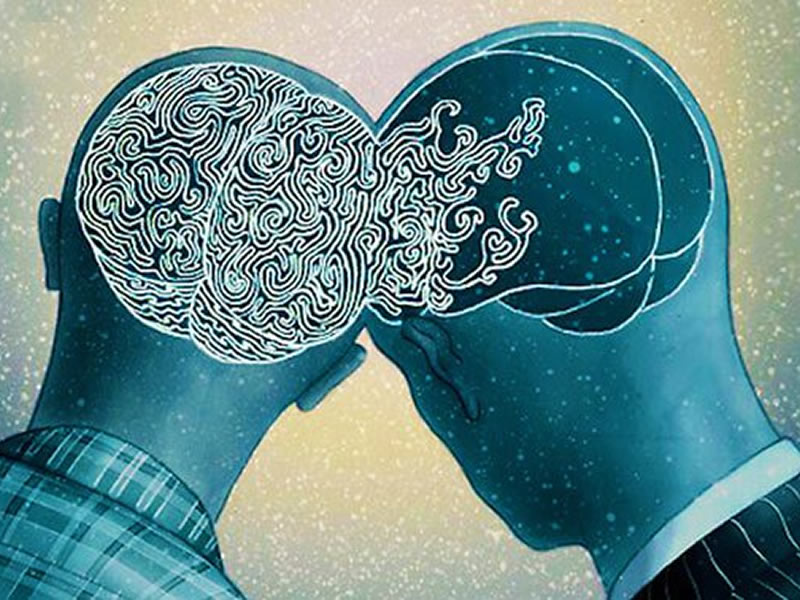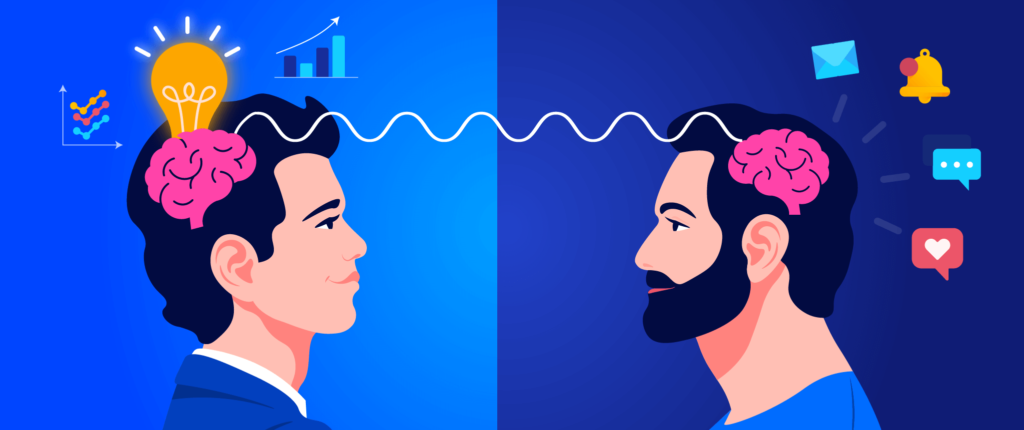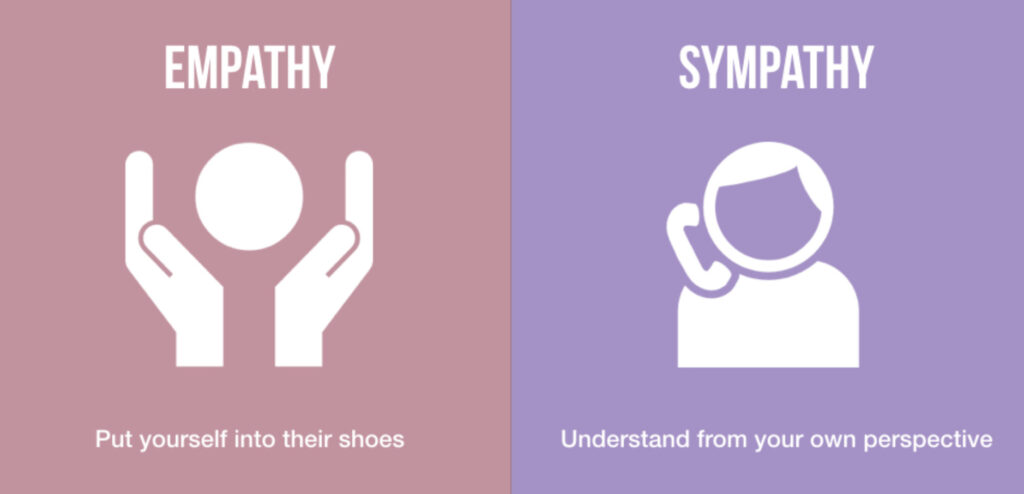Empathy
In 1909, Psychologist Edward Tichener translated the German term of Einfuflung, which was understood as ‘feeling into’. The term empathy was born and is now defined as the ability to share feelings with others. The ability to put yourself in someone else’s shoes. However, it is so much more than that. For example, empathy also involves the ability to not pass judgement, which we all know is difficult. It is a skill rather than an emotion and it is something we have to practice. When we try to understand how someone else is feeling, we need to search within ourselves and ask how it would make us feel.

The Neurology of Empathy: Mirror Neurons
Empathy is imprinted in our brains, in an area known as the supramarginal gyrus. This allows us to give money to charity, to help our friends when they’re feeling down and to marvel as we journey alongside our favourite tv show characters’ lives.

In fact, neuroscientists have discovered that we have mirror neurons in our brain that copy the emotions that other people feel. This means that when we watch someone else, the same brain areas are stimulated as if we were carrying out the action ourselves and this creates an emotional contagion. This is why we yawn when we see someone else yawn, smile when we see someone else smile and cringe when someone gets hit painfully. Therefore, empathy is an inner imitation of others. However, in some cases, we are unable to emphatize. You might have experienced a break up before but not the death of your child. You can’t fit your feet into everyone’s shoes. Empathy is often a subconscious reflex but in order to be truly empathic, it is something we have to consciously make ourselves aware of by paying attention to others around us and moving away from our egocentric obsessions. Rather than being on our phone at the waiting room, look around and realise that everyone else in that room is dealing with their own challenges like you. And there’s actually a word for this! Sonder is the realisation that everyone who walks past you is constantly living a complex life despite your lack of input.
Empathy vs Sympathy

It is also critical to note that empathy is not feeling sorry for someone. Whereby empathy is a skill that people develop through practice, sympathy is an emotion we experience when we see someone in a bad situation. Whereby empathy is putting yourself in someone else shoes, sympathy is feeling sorry about the poor condition of someone’s shoes. As a result, they come from different brain areas. Sympathy is an emotion that stems from emotional areas of the brain while empathy is something that is learned and developed in the thinking department. Because sympathy is an emotion, it’s an automatic response that we can’t control but this does not mean that we act on it. In most cases, we don’t. For example, you will feel sympathy when you walk past a homeless person but not always offer help. Sympathy, which is synonymous to pity, represents the acknowledgement of someone else’s sadness. For example, people might look for demonstrations of pity through likes on a sad video online. The likes won’t help the situation but acknowledgement is there that people feel sorry.
Empathy vs Altruism

Altruism is then different to empathy and sympathy because it does not acknowledge emotion. Altruistic people just want to do the right thing, irrespective of how someone is feeling. For example, an altruistic person might try to buy a brand new watch for someone who has just lost their watch that had sentimental value because. It’s the right thing to do but it does not account for the emotion attached to the sentimentality. Therefore, when we see a therapist, we don’t want them to be altruistic or sympathetic. We want them to be objective and empathetic. If they understand how you feel rather than feeling sorry for you or trying to always do the right thing, they’re not really helping you. And if that’s what we want in our therapists, that is how we should aim to be as friends.
Empathetic Benefits
For children, empathy is particularly important as it coincides withe the development of sharing, forgiving, sacrificing and listening. Dan Siegel refers to empathy as the superpower of mindsight. Empathy is also a crucial ingredient to emotional intelligence. It is highly unlikely that one can build a relationship without empathy and people who can read others have been found to deal better with stress, have better mental health and be more liked by others. It has been understood that empathy also helps us to stop generalising and labelling. Rather than us vs them, which often leads to racism, xenophobia and hatred, empathy helps us realise that ‘they’ are actually people just like us with thoughts and feelings. An extreme example would be that psychopaths have been found to lack empathy.

Empathy is closely tied in with social skills, which will be touched on in another post. This is because additional questions and interest are sometimes important in order to empathise better. How a person currently feels might be influenced by something they experienced in the past. For example, anybody would feel upset if they failed a test but they would be far more upset and even distraught if they had failed that test last year as well. Therefore, empathy is contextual.
Empathy vs Compassion
The most significant final distinction that needs to be made is between empathy, which is understanding how someone feels, and compassion, which is actions to help others. This means that understanding how someone feels does not always lead to action and the connection between empathy and compassion is also largely influenced by context. For example, Latane and Darley demonstrated that we are less likely to be empathetic when we are in bigger groups. The bystander effect found that when someone is in need of help in large groups, such as in a busy city centre, they are less likely to be helped but when alone with another person, they were more likely to get help. This is why nobody in a group helps a person being bullied, or why homeless people are ignored.

Interestingly, Yale professor and psychologist Paul Bloom argues that empathy is not helpful because when you focus on individuals, you become blind to bigger world problems such as global warming. When we think we are doing the right thing for individuals based on empathy, we are actually making things worse. For example, we should invade Afghanistan to save our people from terrorism when more people will be killed from war. So what’s the solution? Compassion!
Yours Sincerely,
The Motus Movement